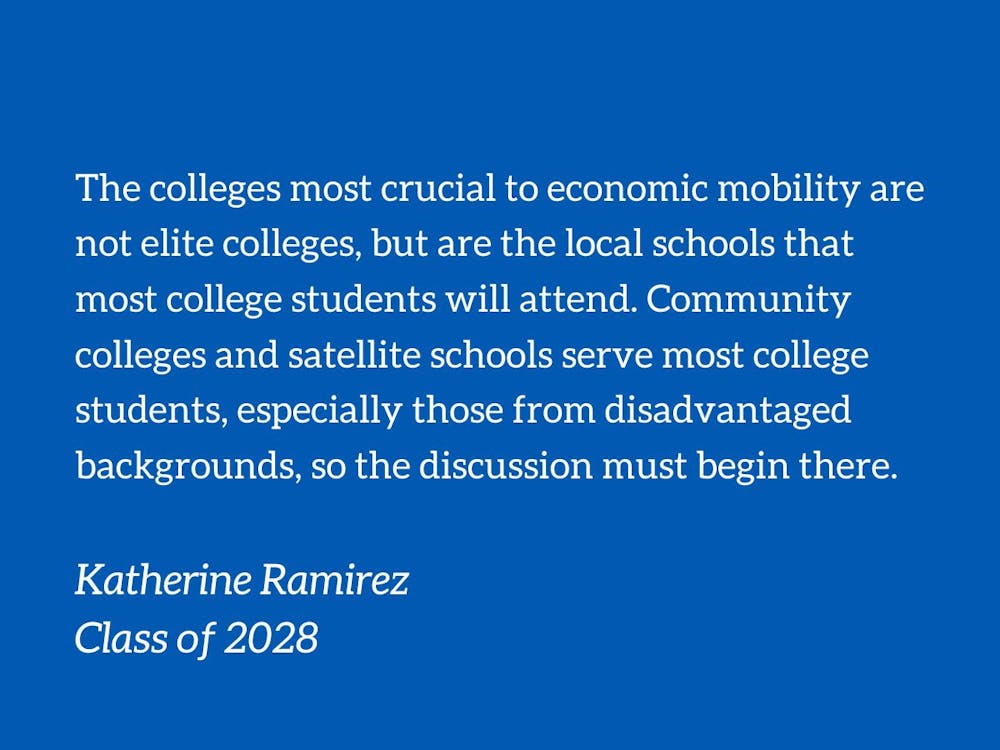On Sept. 30, California Gov. Gavin Newsom signed AB 1780, a new bill banning legacy and donor-based admissions for private colleges. This happened in reaction to last year’s Supreme Court ruling banning affirmative action, with groups such as Class Actions claiming legacy admissions disproportionately benefit white and wealthy students. California is not the first state to do this; Maryland earlier this year made a similar move banning legacy and donor admissions in private colleges. In a statement, Newsom stated, "In California, everyone should be able to get ahead through merit, skill, and hard work … is why we’re opening the door to higher education wide enough for everyone, fairly." But how effective is banning legacy admissions in achieving that goal of fairness?
This article is not meant as a jab towards legacy students or to imply that they are undeserving of their spots. Legacy without major donations remains a boost to an application, but applicants are still expected to meet academic standards. But this boost is still given to a group of students who are generally advantaged beyond their legacy status.
The most common defense of legacy admissions is tied to the idea that it encourages donations that will help all students. Families might be more likely to make large investments in a school — such as a new library or engineering building — if they’ve attended that school for generations. And this conversation often focuses on financial aid, claiming that students from lower-income backgrounds benefit from the legacy structure since donations partially fund their aid packages. But is it really believable that a top 6 university, as many Duke students have touted on their Instagram pages, would struggle to find funding without legacy admissions? Other institutions such as Johns Hopkins University and Amherst College have opted to end their practice of legacy admissions, and both institutions still retain endowments valuing billions of dollars. Moreover, Richard Kahlenberg’s "Affirmative Action for the Rich" found that evidence of legacy admissions increasing donations was marginal to non-existent. So if peer schools manage to raise money without legacy and this practice lacks evidence, why does Duke continue practicing legacy admissions?
There’s no good reason for Duke to continue its practice of legacy admissions, but it is also unimportant in the grand scheme of things. Without other efforts, there is no guarantee that freed-up legacy spots would go to disadvantaged students in the first place. Around half of Duke is on financial aid, but that means around half the student body has the family income to pay full price around $90,000 a year.
When it comes to aiding historically disadvantaged college students, the discussion often centers on elite colleges. But the so-called Ivy-Plus serves less than 1% of college students, and these numbers are even less for Black, Hispanic and Native American students. In the Duke Class of 2028, these groups represent around 28% of the freshman class yet represent around 42% of Generation Z.
The discussion often centers on this ideal kid from a low-income household who "beats the odds" and excels in high school. But why do we only care about a needle in a haystack? Even a brilliant kid might struggle to achieve at a high level if they have an unstable household, a bad school environment and economic instability. On top of that, the average person deserves opportunity and not just those identified to have nebulous potential early in life. Helping disadvantaged students involves funding the colleges in your neighborhood, expanding gateway programs in high school while students are still required to attend and creating more equitable education at all levels. Duke and similar schools providing opportunities for historically disadvantaged students should be further encouraged, but they can’t meaningfully change inequalities in education on their own.
I stand by the fact that Duke should remove legacy admissions on the principle of fairness and its lack of tangible benefits, though I am under no delusion that admissions would become entirely fair if this policy were removed. I don’t believe there are any admissions policies Duke could enact to be entirely meritocratic, since at the end of the day, high achievement doesn’t exist in a vacuum. But the discussion surrounding equality in education ought to not surround elite colleges, because they can never be a solution for most students. The colleges most crucial to economic mobility are not elite colleges, but the local schools that most college students will attend. Community colleges and satellite schools serve most college students, especially those from disadvantaged backgrounds, so the discussion must begin there.
Katherine Ramirez is a Trinity first-year.
Get The Chronicle straight to your inbox
Sign up for our weekly newsletter. Cancel at any time.

